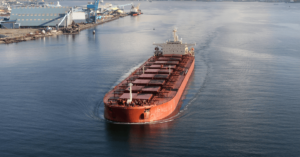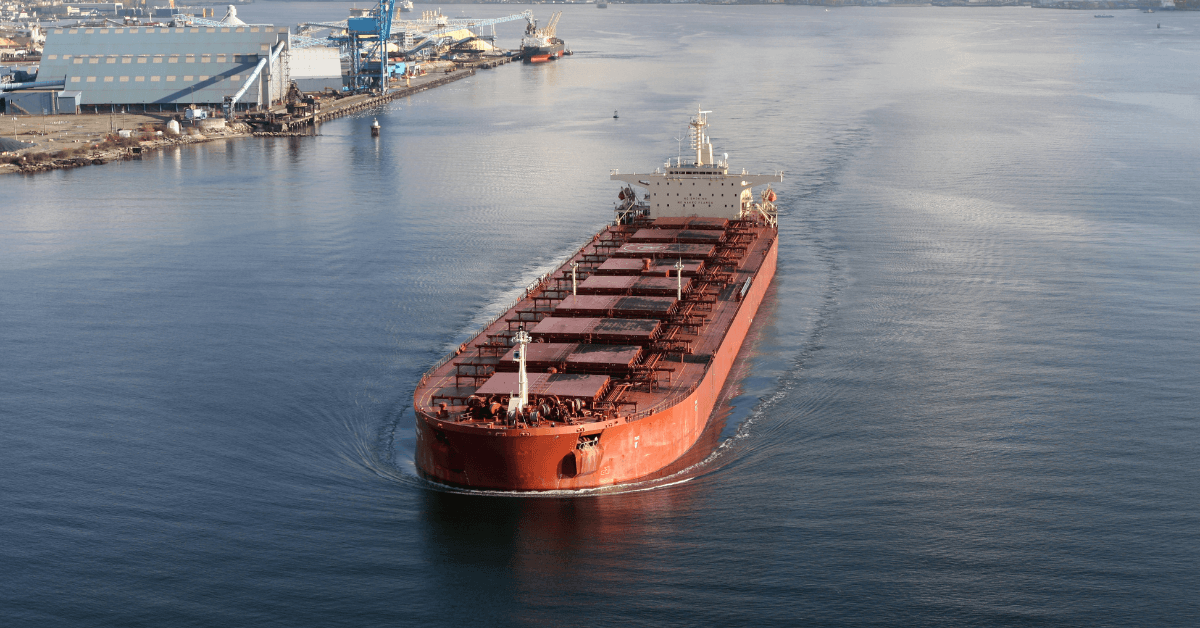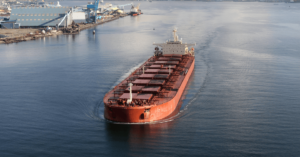
Crowley Expands Harbor Services With Acquisition Of Mooring Firm Main Line
January 3, 2025
French Navy Sinks Decommissioned Ship With Powerful Heavyweight Torpedo In Live-Fire Exercise
January 3, 2025

A cargo of nearly 20,000 tonnes of ammonium nitrate fertiliser, which was also labelled as a “floating bomb”, has finally reached Côte d’Ivoire after months of international scrutiny.
The fertiliser, transported by the Barbados-flagged cargo ship Zimrida, arrived in Abidjan earlier this week.
The cargo had originally been carried by the Malta-flagged ship Ruby, which drew worldwide attention due to its hazardous condition and explosive cargo.
The amount of the fertiliser was seven times that of the 2020 Beirut explosion, which killed over 200 people and injured thousands.
The Ruby loaded the fertiliser in Kandalaksha, Russia, in August 2024 and set off for Brazil. However, a severe storm damaged the ship’s hull, propeller, and rudder.
It sought refuge in Tromsø, Norway, in early September, but authorities were concerned about the ship’s nearness to a university and hospital and ordered it to move offshore.
Although Malta and the ship’s classification society, DNV, declared the ship seaworthy for transport, they said it needed immediate repairs.
Local authorities in Lithuania later denied the ship entry over safety risks and other countries like Denmark and Sweden also restricted the vessel.
After being denied entry into multiple ports, the Ruby diverted to an anchorage off England. In late October, the port of Great Yarmouth agreed to allow the transfer of the fertiliser cargo to another vessel, the Zimrida.
However, this decision started a political and public outrage. Local officials raised concerns about safety after finding that about 300 tonnes of the fertiliser had been contaminated by leaking fuel.
There were even discussions about evacuating parts of the city.
The contaminated fertiliser was eventually dumped into the North Sea in a controlled operation. Environmentalists criticised the move, warning about the harmful impact on the marine ecosystems.
The UK government defended its decision, saying that ammonium nitrate dissolves in seawater and does not persist as a pollutant.
Most of the cargo was transferred to the Zimrida in Great Yarmouth by mid-December. The ship made a stop in the Canary Islands before arriving in Abidjan, Côte d’Ivoire, earlier this week.
Meanwhile, the Ruby quietly left Great Yarmouth on December 5, 2024, and moved to the port of Tyne in England for repairs. The vessel’s operator, Serenity Shipping, has not commented on the controversy.
The journey of MV Ruby became a global issue, with many referring to it as a “bomb ship”. The fertiliser cargo caused panic in Norway, where the ship was initially anchored near populated areas.
It was later revealed that the cargo was stable and properly packed, but risks increased when some of it became contaminated.
The cargo’s disposal into the North Sea led to protests from environmental groups. Politicians and experts criticised the handling of the situation, saying it shows the loopholes in international protocols for managing hazardous shipments.
Reference: greatyarmouthmercury
Source: Maritime Shipping News


